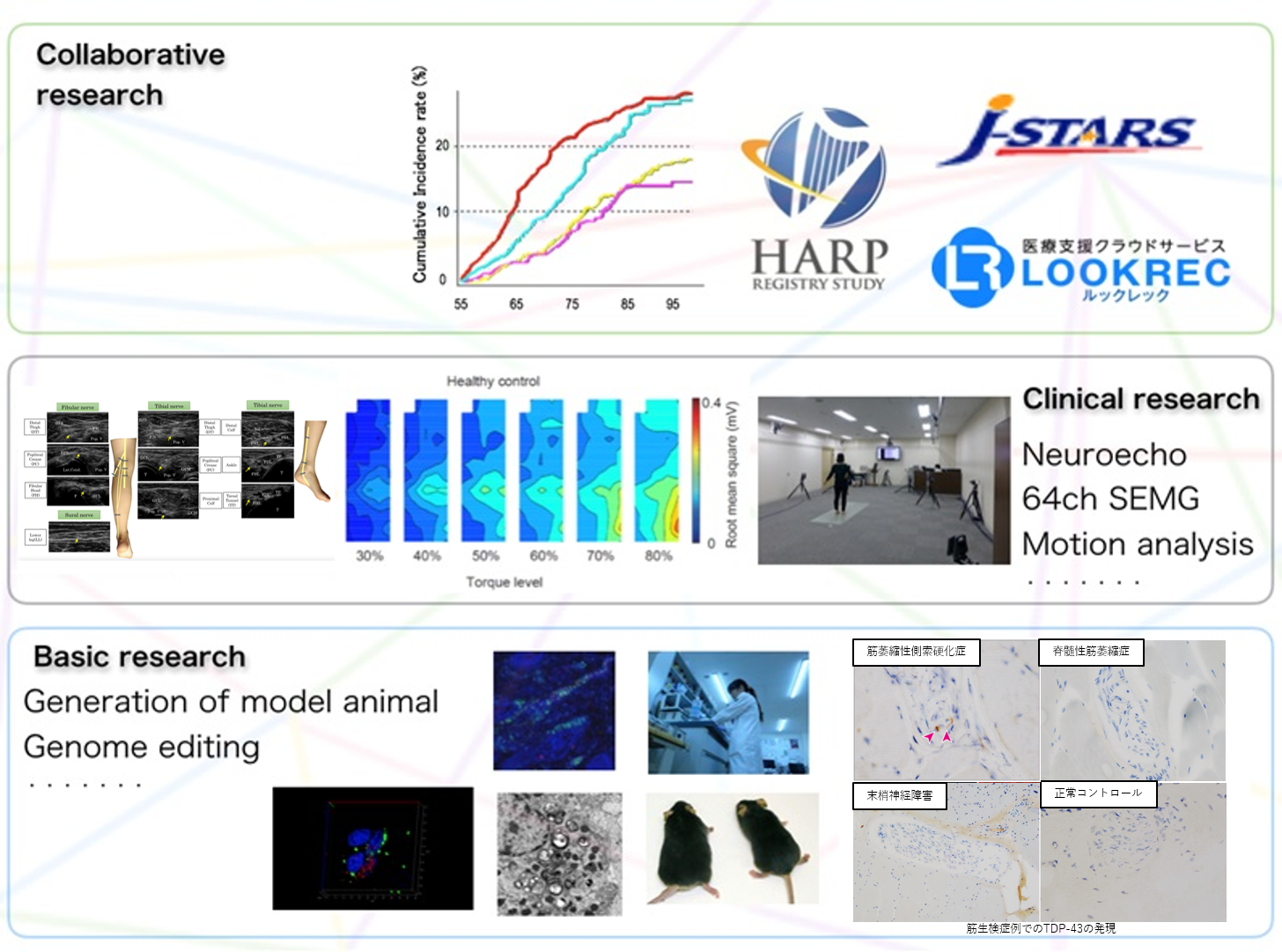【Research Keywords】
Cerebrovascular disease, amyotrophic lateral sclerosis, Alzheimer disease, Parkinson disease, neurodegenerative disease, neuroimmunological disorder, neurosonology, biomarker
【Recent highlights】
We have been studying optineurin, the gene responsible for amyotrophic lateral sclerosis (ALS), which was identified at Hiroshima University. We reported that knockdown of optineurin in myoblasts has revealed that optineurin is involved in muscle differentiation. ALS is widely known as a disease caused by degeneration of nerves, and this finding suggests that some abnormality also occurs in muscle.
We found that phosphorylated TDP-43, which accumulates in neurons of amyotrophic lateral sclerosis, is also abnormally deposited in axons of peripheral nerves from nerve bundles in muscle biopsy tissue. Furthermore, we have reported that the phosphorylated TDP-43 accumulation was also observed in early-stage ALS patients who did not yet meet clinical diagnostic criteria.
We also reported that oligomers of amyloid-β, one of the causative proteins of Alzheimer's disease (AD), are internalized into neurons by a mechanism called micropinocytosis, which contribute to the elucidation of the pathology of AD.
Using next-generation sequencing, we have identified genetic risk factors for Parkinson's disease in Japanese patients.
In collaboration with dentistry, our laboratory has examined factors related to the oral environment and stroke pathophysiology and outcome, and identified various specific periodontal species related to stroke outcome, cerebral small vessel disease status, hematoma expansion in cerebral hemorrhage, and presence of atrial fibrillation. We have also identified nutritional status and tooth loss status as being related to stroke outcome. We are also actively conducting multicenter epidemiological studies and have established a stroke registry study (HARP study) at affiliated hospitals in Hiroshima City. We are also conducting a multicenter study of stroke related to malignant tumors and reporting on blood biomarkers related to pathophysiology and prognosis.
Neurological diseases often cause feeding and swallowing disorders, and we have achieved a great deal of success in clinical research aimed at avoiding the risk of such disorders. In particular, we reported the usefulness of tongue pressure measurement and cough test for assessing aspiration risk in stroke, and proposed an index of tongue pressure value for providing safe eating patterns.
In the study of neurosonology, we clarified reference values for nerve cross-sectional area in lower extremity peripheral nerve echo, in addition to the previously reported reference values for upper extremity peripheral nerves, focusing on anatomical aspects such as nerve branching and confluence.

 Home
Home


